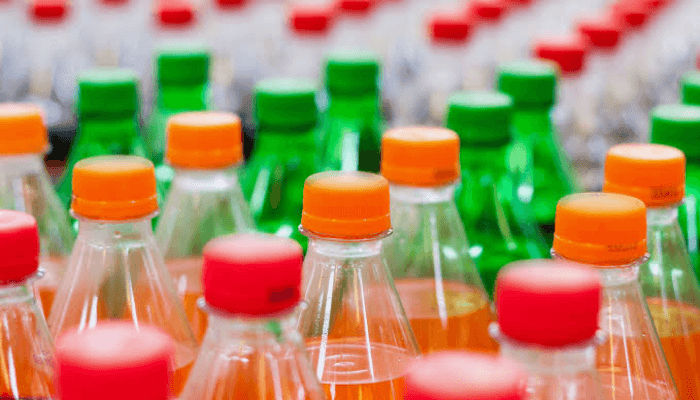Tight wallets, shifting tastes – Nigeria’s changing beverage market
The beverage market in Nigeria is undergoing significant changes as economic challenges and evolving lifestyles reshape consumer behaviour. Tighter household budgets are making consumers more cautious and selective in their drink choices. Rather than cutting back entirely, some consumers are opting for smaller, more affordable packaging while prioritising quality. From refreshing soft drinks on hot Lagos afternoons to convenient coffee sachets for busy mornings, consumption habits reflect adaptation to the current economic environment.

Beverage companies now focus on emotional engagement, competitive pricing, and lifestyle-focused marketing to sustain growth. A sharp increase in food and beverage prices led to a surge in food inflation, which peaked at 40.66% in 2024, according to NBS. This rise reflects the significant cost pressures faced by consumers, particularly in staple and popular beverage items, reshaping spending habits across the country.
Read also: Rites Foods excites beverages market with new enriched product
Economics of Beverage Spending
Beverage spending is expected to reach approximately ₦140.8 trillion by 2025, driven by growing demand for both non-alcoholic and alcoholic beverages. In the non-alcoholic category, which includes soft drinks, bottled water, energy and sports drinks, ready-to-drink coffee and tea, and juices, home consumption through supermarkets and convenience stores is expected to generate around ₦79.3 trillion, while restaurants and bars will contribute ₦1.2 trillion, bringing the total to ₦80.5 trillion. For alcoholic beverages, covering beer, wine, spirits, cider, perry, and rice wine, home consumption is forecast at ₦61.5 trillion, with ₦530 billion from out-of-home sales, reaching a combined total of ₦62 trillion, according to data from Statista
For many Nigerians, beverages have become a reflection of their lifestyle and daily rhythm. Soft drinks and wines often mark family celebrations, energy drinks are linked with ambition and nightlife, while coffee has become part of the early morning hustle. Each drink choice now mirrors how people live, work, and unwind. Yet, with tighter budgets and rising prices, consumers are becoming more selective. Companies that respond with value-driven products, creative packaging, and authentic emotional appeal are better positioned to stay relevant. More than ever, the beverage market is being shaped by identity, aspiration, and a quiet shift in how Nigerians connect with what they drink.
Small Packs, Big Strategy and Local Players
As Nigeria’s urban centers swell with new residents and lifestyles evolve at a rapid pace, the beverage industry is undergoing a quiet revolution, one driven not by flashy campaigns or celebrity endorsements, but by the humble small pack.
Recent consumer studies show a clear move toward convenient, single-serve packaging, reflecting the realities of modern Nigerian life: fast-paced, mobile, and budget-conscious. From PET bottles to sachets, compact formats are becoming the preferred choice for millions managing tighter budgets and busier routines.
According to 6Wresearch, demand for PET bottles in Nigeria is projected to grow at an annual rate of 7%, with the water sector alone accounting for 75% of all PET bottle usage. Yet, local production remains nascent, often relying on imports; an imbalance that presents both a challenge and a golden opportunity.
“The packaging landscape in Nigeria is at a critical turning point,” says Tunde Adebayo, a consumer goods analyst based in Lagos. “Small-format innovation isn’t just about convenience; it’s about unlocking access, affordability, and emotional relevance in a market where every naira counts.”
Indeed, the rise of small packs has catalysed growth in the informal retail economy, creating jobs and enabling local producers to compete with multinational giants. It’s a strategy that’s as much about economics as it is about identity.
Homegrown beverage makers like Chivita, Bigi, Viju, and La Casera have rewritten the playbook. Once niche players, they now command significant market share by tapping into local tastes, cultural cues, and pricing sensitivity. Their agility in responding to micro-trends, whether it’s low-sugar variants or regionally inspired flavors often outpaces global brands hampered by corporate inertia.
These companies have mastered the art of relatability. Their products don’t just quench thirst; they resonate. Whether it’s a Bigi soda at a roadside kiosk or a La Casera apple drink on a commuter bus, these beverages have become embedded in the rhythm of everyday Nigerian life. While global titans like Coca-Cola and Nigerian Breweries continue to dominate in scale, the battle for consumer loyalty is increasingly being won by brands that are fast, flexible, and culturally fluent.
Pouring into the Future
Wellness and innovation are redefining what beverages mean to today’s consumers. People now want more than refreshment; they crave drinks that fuel energy, hydration, and health. This shift is inspiring brands to rethink their product mix, from low-sugar soft drinks and vitamin-packed juices to functional teas and ready-to-drink cocktails that cater to busy, modern lifestyles. Alcohol makers are also finding new appeal with flavoured beers and portable options that attract younger audiences. For drinks companies and investors, the message is clear: success will come from striking a balance between affordability and aspiration. As inflation squeezes wallets, brands that blend smart pricing, creative storytelling, and emotional connection will shape the next chapter of Nigeria’s beverage market, where taste meets lifestyle and innovation drives loyalty.

